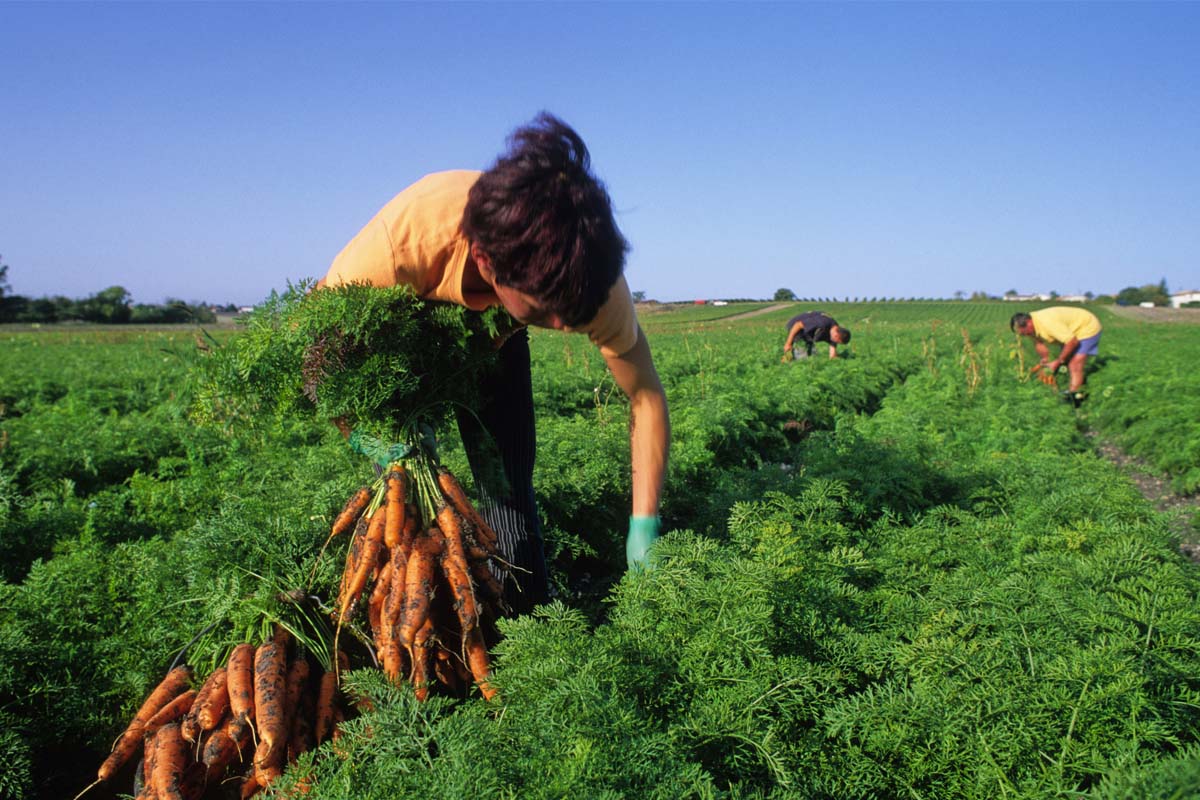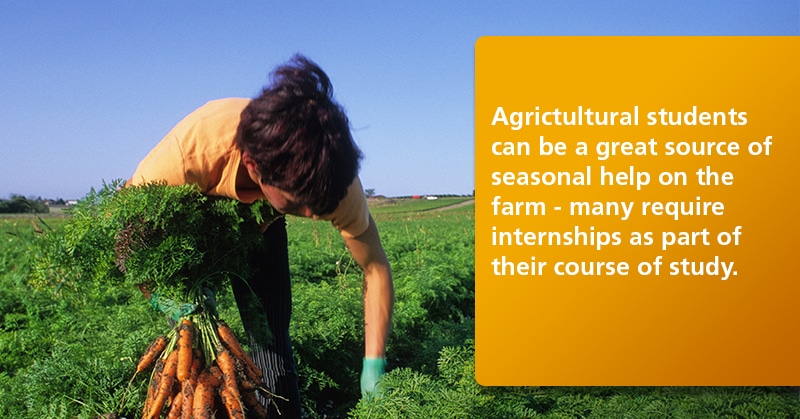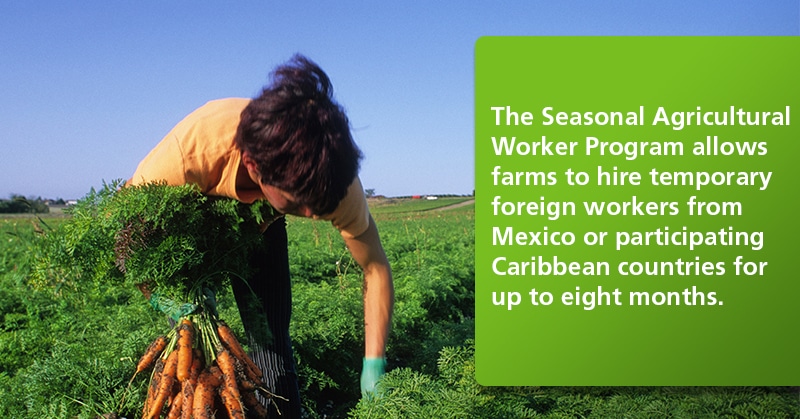Finding help on the farm

As your farm grows and expands, you’ll find you need extra hands to keep it functioning at optimal levels – especially during peak production and harvesting times. Fortunately seasonal farm workers can come from a number of sources, and many of them are even free.
WWOOFers
WWOOF stands for “willing workers on organic farms”. Even though the name has the word “organic” in it, non-organic farms can also employ WWOOFers. People from all over the world become WWOOFers as an inexpensive way to travel. They trade farm work for room and board as payment.
WWOOFer stays can last a few weeks or a few months. WWOOFERs do not have work permits, and collect no money for their work. Hosting WWOOFers on your farm introduces you and your family to people and cultures from all over the globe, and provides a free source of help at the same time. For more information, visit www.wwoof.ca.
Students
Agriculture students often require internships on working farms as part of their education. Room and board and some financial remuneration are typically part of the arrangement. Students looking for placement may approach you, or you can contact the colleges and universities with agriculture programs. You can also place ads for students in agriculture on job search sites like Indeed or Monster.
Even students who are not in agriculture are an excellent source of hired help. Many young people appreciate weekend jobs to earn some extra spending money, and six to eight hours every weekend can be very helpful to your operation.

Temporary Foreign Workers
It is common practice for farms to hire temporary foreign workers (TFW) to assist during peak production and harvesting times.
The Seasonal Agricultural Worker Program (SAWP) allows farmers to hire temporary foreign workers (TFW) from Mexico or participating Caribbean countries for up to eight months provided you can offer a minimum of 240 hours of work within a period of six weeks or less.

To hire TFWs, you must:
- Arrange and pay for the round-trip transportation of the temporary foreign worker (TFW) to your farm and back to the TFW's country of residence
- Provide transportation to and from the housing location to the work site
- Provide suitable housing either on-farm or off-site
- Provide a housing inspection report by a provincial/territorial/municipal body or by a certified private inspector
- Ensure that all TFWs are registered for health insurance as soon as they become eligible
- Ensure that the TFWs are covered from the provincial/territorial workplace safety insurance provider, where required by law
- Notify workers of pesticide and chemical use and provide workers with protective equipment, training and supervision where required by law
Read more information on the SAWP.
Keep thorough records
It’s a good idea to keep records of all the individuals you have working on your farm, even if they’re not paid or permanent employees. Include things like job descriptions and performance evaluations to help make dealing with any future work-related issues easier.
When you hire a permanent employee, you need to register with the appropriate agencies such as the Canada Revenue Agency and provincial WorkSafe agencies, and do the required amount of recordkeeping.
Safety first – always
Whether permanent or temporary, all farm workers are exposed to specific hazards such as heavy-duty machinery, storage silos and unpredictable livestock. In fact, agriculture ranks the fourth most hazardous industry in Canada with respect to rates of fatal injury.
As a farm owner, you are responsible for the safety of everyone who lives, works or visits your farm. Protect your workers by implementing a health and safety plan. Canada FarmSafe offers a core plan to help you make safety part of every process and action on your farm. Download it here.
Liability insurance protects the farm
Typically a farm will have any number of workers come and go as seasonal needs change. With so many different workers on site, there is a greater risk of injury. An accident or lawsuit could destroy years of hard work.
Be sure to carry farm insurance to provide the appropriate liability coverage should someone be seriously hurt while working on or visiting your farm.
When you need extra hands on the farm, it’s good to know you have options. Whether they are temporary, unpaid or permanent, all workers on your farm are your responsibility. Be diligent about adhering to necessary guidelines, keeping extensive records, employing a smart safe plan and carrying the right insurance to protect both you and those who help to make your farm a success.



